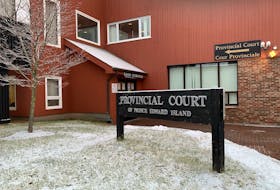CHARLOTTETOWN, P.E.I. — Long overdue changes to P.E.I. laws governing renters and landlords could provide more protections for tenants.
The Department of Social Development and Housing has released a draft of a new Residential Tenancy Act, which would replace the current Rental of Residential Property Act. The draft legislation is the most significant upgrade to laws governing landlords and tenants in more than 30 years.
Tenancy disputes are adjudicated by the Island Regulatory and Appeals Commission, but the new legislation would see IRAC taking more of an active role in the relationship between tenants and landlords.
As one example, landlords would have to apply to IRAC in order to keep a portion of a tenant’s security deposit due to damage to a rental property. Under the current legislation, a landlord only has to give notice to a tenant in order to retain all or part of a damage deposit, if an apartment has sustained significant damage. Tenants can currently challenge landlord decisions related to damage deposits.
Social Development and Housing Minister Ernie Hudson said the proposed legislation will be the subject of public consultation during the month of March and will come before the legislature in the spring sitting.
"It's a relatively aged act, and I think it's an opportune time, given the situation we're in now," Husdon said.
The new legislation sets out provisions for use of cannabis in rental properties. Existing prohibitions against smoking tobacco would apply to cannabis, but vaporizing cannabis products would be permitted.
Individuals facing domestic violence would be able to break their lease, with one month’s notice.
Tenants who are facing eviction due to extensive renovations to their building would see their notice period extended from 60 days to six months. These tenants would also have a right of first refusal, meaning they would need to be given the option to move back into a unit after renovations are completed.
Housing advocates have argued so-called renovictions are on the rise.
Jeff Gallant believes he was renovicted twice over the course of the last year, most recently after his former apartment was bought by new owners.
Gallant managed to find a three-bedroom apartment after being evicted in late July. The new apartment accommodates himself and his two children but is $200 more per month than he was paying before.
Since his eviction, Gallant said he has seen his former apartment on Fitzroy Street listed online for $1,550, $300 more than he was paying as a tenant and far above the two per cent maximum allowable rent increase for 2019.
“The rent was good for what was currently going on over here. Everything else I was looking at was $1,400, $1,500, $1,600," Gallant said.
Gallant said he believed the "right of first refusal" protection would be an improvement.
Upcoming dates for consultations on tenancy law changes
- March 9: Alberton, Holland College West Prince Campus, 6-8 p.m.
- March 11: Summerside, Credit Union Place, 6-8 p.m.
- March 25: Montague, Montague Regional High School, 6-8 p.m.
- March 26: Charlottetown, Jack Blanchard Hall, 6-8 p.m.
Submissions will also be accepted online starting March 2.
Opposition Green MLA Hannah Bell said the new legislation, if passed, would be a positive step. She said several of the new provisions, including those related to domestic abuse and the lengthier notice period for evictions related to building repairs, were a result of consultations between the governing Progressive Conservatives and the Opposition Greens.
She said the existing Rental of Residential Property Act, which she deemed “beyond repair", was ill-equipped to deal with renovictions.
"Frankly, those were loopholes that needed to be closed because they were not fair," Bell said.
The new legislation includes several provisions that could allow a landlord to increase rent beyond the current IRAC limitations, usually between one and three per cent. Landlords could apply to IRAC to increase rents beyond this amount based on issues such as maintenance costs or improved amenities.
But Bell said the new legislation lacked provisions that would create a rental registry, allowing tenants to track how much rent previous tenants may have paid in their unit.
After moving out of a Charlottetown apartment in January, renter Allie Ralling noticed this same apartment listed online for $880, $38 per month more than she had paid. This was significantly above the allowable rental increases set by IRAC.
Ralling said that, without a rental registry, new tenants cannot tell how much previous tenants have been paying.
"If I move out between rental increases and my landlord increases it, I can't substantiate that that's happening, that's even widespread,” Ralling said.
“We have no way of even tracking (if) rents (are) even going up."
The Guardian reached out to several property owners for comment. No one was prepared to offer comment on the proposed changes.









